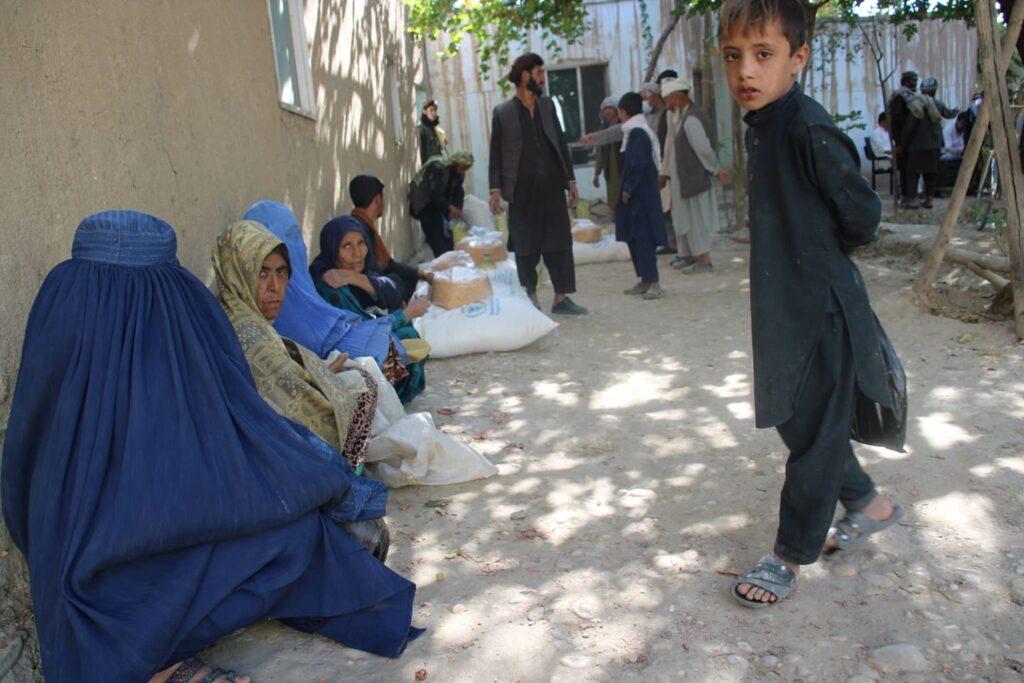KABUL (Pajhwok): A new commentary in The Lancet calls for urgent action to prevent worsening of the health and humanitarian catastrophe in Afghanistan, saying there are substantial health, humanitarian, and protection needs in the country.
The medical journal said that humanitarian and health organisations report large internal displacement of people in Afghanistan, with 250 000 displaced since May, 2021—and 80 000 children displaced in the past 2 months alone; alongside decreased access to health careand interruption to essential health services.
The health needs faced by those affected by conflict and displacement also come against the backdrop of a crisis of hunger from recent drought in Afghanistan, with 17 million people facing food insecurity and 2 million children at risk of becoming malnourished.
Without available and accessible health care or humanitarian aid, the health consequences of continued conflict and displacement, combined with the COVID-19 pandemic, are likely to be catastrophic.
Afghans who have fought to bring health and justice to the country in their roles as officials, health professionals, non-governmental workers, activists, artists, and journalists are being persecuted once again.
Over the coming months, there is a significant risk that the collective efforts invested by successive ministers and others, in humanitarian aid, service delivery, and strengthening of the health system in Afghanistan will be lost.
As such, to ensure access even to basic health services, vital humanitarian health efforts need to be protected so that they can be safely continued. Currently, the ability to respond to the growing humanitarian needs has reduced substantially, as the UN and humanitarian agencies have been unable to effectively continue delivery of aid, including medical supplies and food.
Without available and accessible health care or humanitarian aid, the health consequences of continued conflict and displacement, combined with the COVID-19 pandemic, are likely to be catastrophic.
With the freezing of Afghanistan’s international assets, the financial situation in the country is set to deteriorate rapidly, with civilians bearing the brunt of increased poverty.
Dr Mohammad Haqmal of City, University of London, says: “It is essential to guarantee sustained humanitarian access and an increase in international aid, with secure supply routes for humanitarian agencies. Alternative routes for provision of aid must be secured immediately to avert humanitarian disaster, and mechanisms put in place for the allocation of funds directly to humanitarian agencies in the country.”
Dr Ayesha Ahmad of St George’s University of London highlighted that: “Among other urgent health needs are those of children in Afghanistan. It is also essential to consider the long-term and generational mental health and traumatic impacts of childhood exposure to war and conflict-related violence in our health responses. ”
Professor Karl Blanchet,Director of the Centre of Humanitarian Studies, University of Geneva added: “As a public health and research community, we have responsibility of solidarity vis-à-vis all our Afghan peers who have dedicated their life to population health. We have many means in our hand to pay back our gratitude and protect our colleagues stranded in Kabul”
Dr Miriam Orcutt at the Institute for Global Health, University College London said: “In order to address the needs of those displaced, international governments should immediately provide sanctuary for refugees forced to leave Afghanistan, ensuring effective routes to safety and urgent humanitarian visas; stop deportations to Afghanistan; not criminalise those who reach other countries in search of safety; and, in the longer-term, implement resettlement schemes.
pr/ma







GET IN TOUCH
NEWSLETTER
SUGGEST A STORY
PAJHWOK MOBILE APP